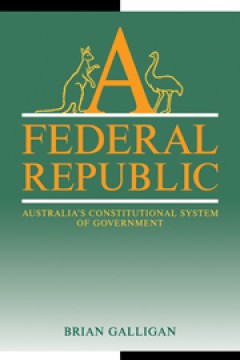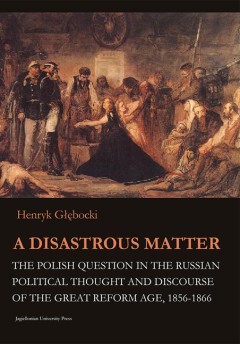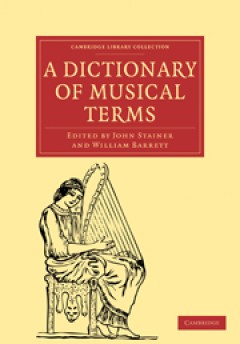Filter by

A Federal Republic Australia's Constitutional System of Government
This provocative book, first published in 1995, argues that Australia is already a federal republic rather than a constitutional monarchy. It argues that by adopting a federal constitution in 1901 Australians ensured their status as a sovereign people. While the book does not deny the parliamentary and monarchic elements of the Australian system, it calls for a positive reassessment of the Cons…
- Edition
- -
- ISBN/ISSN
- 9781139084932
- Collation
- -
- Series Title
- Reshaping Australian Institutions
- Call Number
- -

A Doubter's Doubts about Science and Religion
This 1889 volume was published anonymously and later ascribed to Robert Anderson, a barrister and theological writer who became Assistant Commissioner at Scotland Yard. Mixing his religious beliefs with his detective skills, Anderson argues for true scepticism to be embraced, comparing the tricks played on people by organised religion and science to the scams of confidence tricksters. Writing f…
- Edition
- -
- ISBN/ISSN
- 9780511700811
- Collation
- -
- Series Title
- Cambridge Library Collection - Religion
- Call Number
- -

A Divided Poet Robert Frost, North of Boston, and the Drama of Disappearance
Frost's breakthrough book of poetry seen anew as an artistic whole and in the context of the poet's career and development.
- Edition
- -
- ISBN/ISSN
- 9781571138149
- Collation
- -
- Series Title
- Studies in German Literature Linguistics and Culture
- Call Number
- -

A Disease of Society Cultural and Institutional Responses to AIDS
The impact of AIDS cannot be adequately measured by epidemiology alone. As the editors of this volume argue, AIDS must be understood as a 'disease of society', which is challenging and changing society profoundly. Numerous books on AIDS have looked at the ways in which our social institutions, norms and values have determined how the disease has been dealt with, but this book, first published i…
- Edition
- Dorothy Nelkin, David P. Willis, Scott V. Parris
- ISBN/ISSN
- 9780511571046
- Collation
- -
- Series Title
- -
- Call Number
- -

A Disastrous Matter The Polish Question in the Russian Political Thought and…
This book was originally published in Polish as ‘Fatalna sprawa: kwestia polska w rosyjskiej mysli politycznej 1856-1866j’, (Kraków: Arcana, 2000). It sets out to present the Polish-Russian conflict the way the elite of Russian society saw it. One of its chief research topics is the interaction between Russian public opinion, the policy the Empire pursued on its uncompliant subjects, and t…
- Edition
- -
- ISBN/ISSN
- 9788323395256
- Collation
- -
- Series Title
- -
- Call Number
- -

A Concise History of Music: From the Commencement of the Christian Era to the…
Henry George Bonavia Hunt (1847–1917) is best remembered as the founder of Trinity College of Music, London, which had grown out of the Church Choral Society he had established in 1872. A talented preacher and choirmaster, he also edited several popular journals, composed, and served as a lecturer in music history for the University of London between 1900 and 1906. This popular textbook, firs…
- Edition
- -
- ISBN/ISSN
- 9781107300644
- Collation
- -
- Series Title
- -
- Call Number
- -

A Dictionary of the Suahili Language With Introduction Containing an Outline…
Johan Ludwig Krapf (1810–81), a German-born member of the Church Missionary Society in East Africa, is regarded as the founder of Swahili studies in Europe. Having pursued an interest in Oriental culture from an early age, he first went to Abyssinia (Ethiopia) as a missionary. During his travels in Africa, he became the first European to see Mount Kenya; but he also considered the potential o…
- Edition
- -
- ISBN/ISSN
- 9781139207126
- Collation
- -
- Series Title
- Cambridge Library Collection - Linguistics
- Call Number
- -

A Dictionary of Musicians, from the Earliest Ages to the Present Time
The publisher John Sainsbury produced this two-volume biographical dictionary of musicians in 1824. The book, as he acknowledges on his title page, borrows from the previously published works of Choron and Fayolle (in French), Gerber (in German), Orloff (Russian, writing in French), and his two notable English predecessors, Dr Burney and Sir John Hawkings. It contains a 'summary of the history …
- Edition
- -
- ISBN/ISSN
- 9780511703225
- Collation
- -
- Series Title
- Cambridge Library Collection - Music
- Call Number
- -

A Dictionary of Musicians, from the Earliest Ages to the Present Time
The publisher John Sainsbury produced this two-volume biographical dictionary of musicians in 1824. The book, as he acknowledges on his title page, borrows from the previously published works of Choron and Fayolle (in French), Gerber (in German), Orloff (Russian, writing in French), and his two notable English predecessors, Dr Burney and Sir John Hawkings. It contains a 'summary of the history …
- Edition
- -
- ISBN/ISSN
- 9780511703232
- Collation
- -
- Series Title
- Cambridge Library Collection - Music
- Call Number
- -

A Dictionary of Musical Terms
This illustrated dictionary, written by the prolific Victorian composer Sir John Stainer (1840–1901) – best remembered today for his oratorio The Crucifixion – and W. A. Barrett, was first published by Novello in 1876. It provides definitions for 'the chief musical terms met with in scientific, theoretical, and practical treatises, and in the more common annotated programmes and newspaper…
- Edition
- -
- ISBN/ISSN
- 9780511693007
- Collation
- -
- Series Title
- Cambridge Library Collection - Music
- Call Number
- -
 Computer Science, Information & General Works
Computer Science, Information & General Works  Philosophy & Psychology
Philosophy & Psychology  Religion
Religion  Social Sciences
Social Sciences  Language
Language  Pure Science
Pure Science  Applied Sciences
Applied Sciences  Art & Recreation
Art & Recreation  Literature
Literature  History & Geography
History & Geography